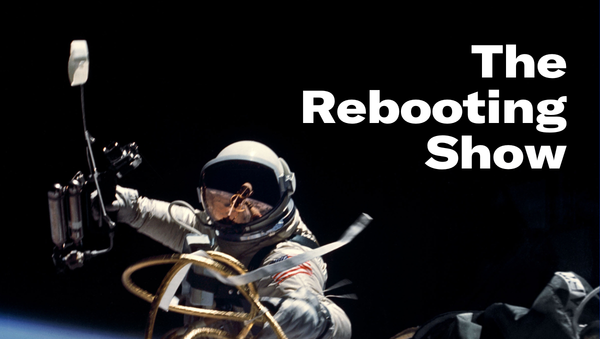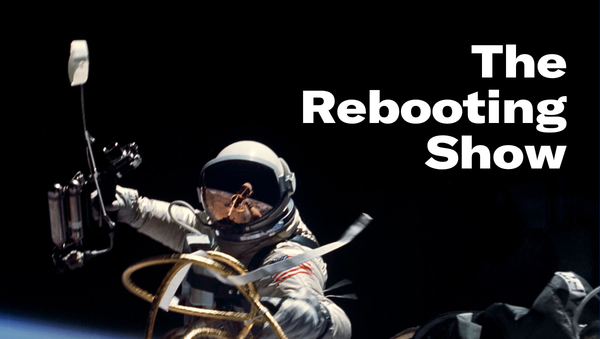Rethinking growth
Looking only at numbers to chart progress is a mistake
Congrats to my longtime former colleagues Shareen Pathak and Jack Marshall for the launch of Toolkits, a much needed hybrid of an information service and consultancy for those building sustainable media businesses. They work with publishers, brands, VCs and more who are using content to solve business problems, whether that’s starting a subscription program (Jack ran the membership program at Digiday) to how brands and DTC brands use content (Shareen was executive editor and managing director of editorial products). Check out what they’re doing.
This week, I wrote about how we need to reframe our thinking on what “growth” means. Too often it’s about numbers and leads us astray. I’m in a bit of a reflective mood since I’m coming up on my one-year anniversary of leaving my job. Over the next few weeks, I’m going to lay out my thoughts on what’s next for The Rebooting. On the subject of growth, while I try not to spend too much time staring at the scoreboard, I do want The Rebooting to reach people who will find it helpful. Please consider sharing with colleagues, friends, loved ones, enemies, you name it. If this was forwarded to you, please sign up.
Several years ago, I was in a drab conference room at one of those corporate retreat centers in suburban Connecticut. We were there to revisit the company’s mission statement and values. The end result of those exercises is like most writing by committee: tortured and anodyne.
At some point, our corporate coach suggested we consider a mantra. The suggestion that was embraced was: Grow. It wasn’t growth, but the transitive verb, meant to be an imperative. Grow has two meanings that are slightly different in emphasis. One is to increase numerically, but the other is to “undergo natural development” and “progress to maturity.”
Like most companies, we spoke a lot about growth in terms of the former. I mean, a lot. We love to chart progress by numbers because they’re easily discernible. Capitalism’s foundational principle has long been economic growth as expressed numerically. GDP growth. Job growth. Income growth. The stock market is premised not so much on a company’s current state but bets on a company’s prospects for income growth. The fuel of the entire global economy has been growth.
The assumption is there is a binary choice: grow or die. Having recently read both “No Filter” and “An Ugly Truth,” it seems clear the overriding philosophy of Mark Zuckerberg is growth at all costs. That hasn’t worked out great for the world. Perhaps Zuckerberg should have stayed at Harvard and taken some humanities courses to better understand the potential downsides of all this growth. Facebook’s not too big to fail; it’s too big to exist. “Is a better Facebook a realistic option, or is the solution a smaller Facebook?” asks Shira Ovide, the On Tech columnist at The New York Times.
I’ve been thinking of growth and its downsides a lot as I plot out my own ambitions for The Rebooting. I’ve written before about “the growth challenge.” Like many in the newsletter game, I spent a lot of time revisiting my subscriber numbers because that’s a number that marks growth. I started a spreadsheet and did compound growth calculations. I’d read posts of successful Substack writers in the hopes of gleaning optimization tactics to drive numerical growth – guest posts? Tweet threads? Merch? A referral program?
But I can’t help but think there’s a need to rethink our obsession with numerical growth. I’m halfway through “Shutdown,” Adam Tooze’s account of the fiscal and economic response to the unprecedented “polycrisis” of the pandemic. (We had not just a health crisis, but also an economic and social one concurrently.) I called this newsletter The Rebooting because early on in the pandemic, I came down on the side of believing it would, over time, result in a lasting recalibration across society. Too many people were trying to will into reality a V-shaped recovery that would reset the clock to where it was. This was an attractive sentiment: “It was all a dream.”
That would be a further waste, coming on top of unprecedented loss. What “Shutdown” makes clear is this pandemic has shown a light on how our conception of growth was off. By most economic growth measures, the United States is the “richest country in the world.” We hear this often. But how rich is a country that needs to ration oxygen because hospitals are overflowing with Covid patients who chose not to get vaccinated? How rich is a country so misinformed about basic science? How rich is a country that has recorded more Covid deaths per capita than most developing countries? How rich is a country where in New York City over 100,000 children are considered to have inadequate shelter? How rich is a country that has chosen to warehouse its elderly and ended up condemning them through neglect? How rich is a country with such vast disparities in income and health outcomes based on race?
Growth has costs. We are so far behind the needed work to decarbonize the global economy in order to arrest the devastating effects of climate change largely because of our myopic view of growth. One of the greatest failures of modern capitalism is the failure to put a cost on carbon. And of course, the West trashed the environment when it was the main driver of economic growth. Now that China is, we have come around to the belief that economic growth needs to be balanced with environmental protection. Nice timing.
The fight against Covid was always a fight not to eradicate the disease – that would prove impossible quite early on – but to buy time for health care systems to hold up. Ours have frayed, and much of the reason comes back to our backward belief that growth is a result of efficiency gains, usually acquired at the expense of resilience. “Organized irresponsibility ruled,” Tooze writes.
The coming chaos due to overstretched supply chains was probably avoidable, but the MBAs have peddled Six Sigma bullshit for a couple generations. I can remember post-Financial Crisis when Nielsen owned Adweek. The new private equity owners brought in a GE guy who was all about finding “efficiencies.” I believe his masterstroke was deploying creepy “space engineers” who came up with the novel idea of shrinking our tiny cubicles even further to wring cost savings. I would joke they’d eventually tell us to use both sides of the toilet paper because across 167 offices it would save $16 million a year. Nobody gets a promotion for suggesting spending money on extra supplies to be kept in storage just in case. Or to have added staff on hand to handle possible catastrophes. The idea that Covid was a “black swan” is ludicrous. Shit, even George W. Bush warned this was coming. “Surplus capacity was viewed not as a responsible precaution but a regrettable drag on efficiency,” Tooze writes. We chose willful ignorance over cutting into margins.
Publishing is no stranger to this impulse. The waves of discontent sweeping newsrooms, leading to 15 million articles about burnout, are the inevitable result of flawed business models. Cry me a river for the publishers complaining about the Great Resignation after years of remorseless layoffs, often done incredibly callously, idiotic and counterproductive pageview and subscription quotas, and the endless pivots to whatever Facebook dangled. The typical model of sending tons of low-paid young people into the content mines turned out to not be so sustainable. Go figure.




